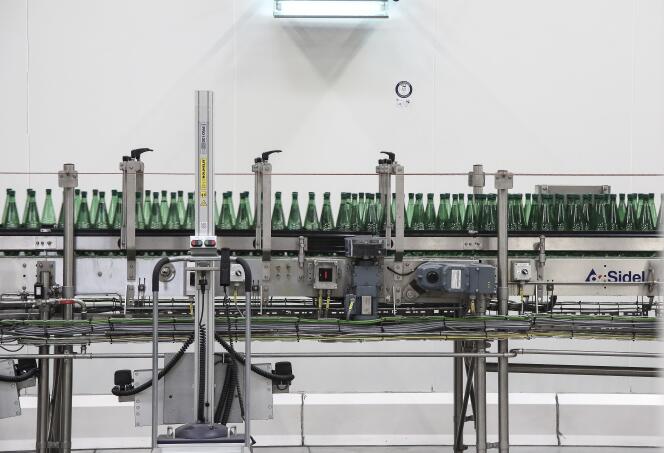


Le Monde, together with the French radio and television network France Info, has learned that the French Agency for Food, Environmental and Occupational Health Safety (ANSES) found that the Nestlé group's mineral waters are not guaranteed to be of "sanitary quality." A report submitted by ANSES to the Ministry of Health in October 2023 stated that extended monitoring of the Swiss group's water was necessary.
This comes after a whistleblower from the Alma Group triggered an investigation by France's consumer control agency (DGCCRF) into the practices of French bottled water producers in summer 2021, revealing that Nestlé Waters used banned disinfection methods like ultraviolet purification, activated charcoal treatments and improper microfiltration.
Public authorities spent months gradually uncovering the unsuspected extent to which manufacturers were resorting to banned treatments to counter the deteriorating quality of sources that were nonetheless theoretically free from bacterial or chemical pollution. A report by the General Inspectorate for Social Affairs, submitted to the government in July 2022 and revealed at the end of January by Radio France and Le Monde, estimated that at least 30% of bottled water brands were using treatments prohibited by regulations, including every brand operated by Nestlé.
The confidential assessment from October 2023 was requested by the regional health agencies (ARS) of the Grand-Est, east of France, and Occitanie, on Spain's border in the south of France, regions, where the multinational food company operates. It was conducted by the Nancy Laboratory for Hydrology (LHN), the ANSES department responsible for consumer water safety. Based on this assessment, the agency highlighted "an insufficient level of confidence in the assessment of resource quality, particularly with regard to the variability of contamination and their microbiological and chemical vulnerability."
Conditions were also deemed insufficient in terms of "the quality of the blends used in the production of the various EMN [natural mineral waters] to guarantee the sanitary quality of the finished products." The burden is heavy and justifies, according to ANSES, the implementation of a "reinforced monitoring plan" and in particular increased vigilance on the "virological health risk." But has the plan, proposed for October 2023, been implemented? The French Ministry of Health declined Le Monde's request for comment, because, they said, of the ongoing judicial investigation.
You have 68.07% of this article left to read. The rest is for subscribers only.
